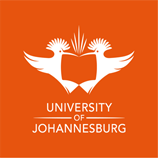The purpose of the Master of Education ICT (Information and Communication Technology) is for students to acquire, strengthen and deepen specialist advanced theoretical knowledge of ICTs in educational environments. The themes that are covered include educational ICT policy development, current and e

The purpose of the Master of Education ICT (Information and Communication Technology) is for students to acquire, strengthen and deepen specialist advanced theoretical knowledge of ICTs in educational environments. The themes that are covered include educational ICT policy development, current and emerging issues in digital learning, contemporary learning design theories and frameworks, and framing assessment within 21st century contexts.
The programme targets education practitioners from the public and private sectors who have an interest in advancing digital learning in their education ecosystems. The programme will appeal to instructional and learning designers, educational researchers, teachers and lecturers, corporate trainers, subject and curriculum specialists, policy advisers, monitoring and evaluation specialists and NGO officials.
This programme requires no travel and no face-to-face sessions, allowing you to earn credits at your own pace while fulfilling personal and professional obligations. Complete the programme in a minimum of two years.
Vibrant, multicultural and dynamic, the University of Johannesburg (UJ) shares the pace and energy of cosmopolitan Johannesburg, the city whose name it carries. Proudly South African, the university is alive down to its African roots, and well-prepared for its role in actualizing the potential that higher education holds for the continent's development.
UJ has transformed into a diverse, inclusive, transformational, and collegial institution, with a student population of over 50 000, of which more than 3000 are international students from 80 countries. This makes UJ one of the largest contact universities in South Africa (SA) from the 26 public universities that make up the higher education system.
The vision of the UJ is to be "an international University of choice, anchored in Africa, dynamically shaping the future". The mission can be described as follows: "inspiring its community to transform and serve humanity through innovation and the collaborative pursuit of knowledge".
These are underpinned by four values, namely: imagination, conversation, regeneration and ethical foundation.
The six strategic objectives provide a focused means for realising the Vision, Mission and Values of the University as set out above. They further represent a re-working of the original UJ Strategic Thrusts 2020 in the context of a wider positioning of the University as "The Pan-African" Centre for Critical Intellectual Inquiry, with the primary goal of achieving global excellence and stature.
The six strategic objectives are:
Recognized as the country's second strongest brand, UJ offers world-class, internationally recognized academic programmes based on curricula informed by cutting-edge developments in both undergraduate and postgraduate education, and that are designed to prepare students for the world of work and for global citizenship.
Our curriculum is increasingly reflective of previously marginalized scholarship that talks to a transformation and decolonisation agenda, with Africa at its core.
© 2025 coursetakers.com All Rights Reserved. Terms and Conditions of use | Privacy Policy